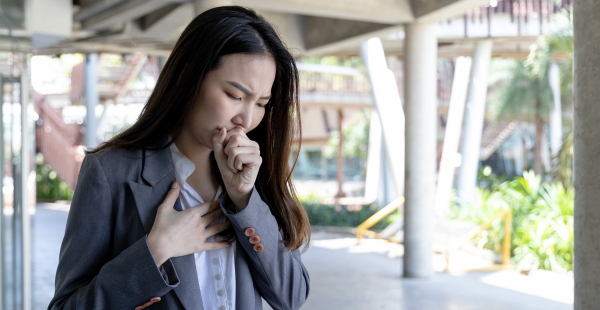Emphysema is a chronic lung condition in which the lungs’ natural airspaces, called alveoli, become larger but decrease in number. The tissue surrounding the alveoli loses elasticity so that the airspaces can no longer expand and shrink as usual. This reduces the amount of oxygen transferred by the lungs to the bloodstream. Air gets trapped in these spaces rather than exhaled, making it more difficult for you to breathe. Emphysema can be part of a lung disease called chronic obstructive pulmonary disease or COPD.

Emphysema usually results from exposure to toxins like cigarettes as well as air pollution, dust, chemical fumes, and irritants. Older adults are more likely to be affected and many people who have emphysema are not aware that they have it. The damage of emphysema cannot be reversed, but treatment may help slow the progression of the disease.
Cigarette smoking is the number one cause of emphysema. Although smoking has decreased in Canada for many years, it’s still a major concern. A huge majority of emphysema sufferers are current smokers or have smoked in the past. Smoking is responsible for 80% to 90% of chronic obstructive pulmonary disease (COPD) cases, including emphysema. Smoking is also responsible for the majority of all lung cancer cases in Canada. A burning cigarette emits over 7,000 different chemicals, many of which are carcinogenic (cancer-causing) or otherwise toxic to living tissue. Being exposed to secondhand smoke also increases your risk of developing emphysema.
Infections of the respiratory tract can also destroy lung tissue and thus contribute to the development or worsening of emphysema. Likewise, having emphysema increases the likelihood of infection.
Heredity is occasionally a factor in emphysema. Carriers of a specific genetic abnormality called homozygous alpha-1-antitrypsin deficiency are at high risk of developing emphysema. However, it is relatively rare and accounts for less than 1% of cases. If you have alpha-1-antitrypsin deficiency, it’s vital not to smoke.
Aging naturally brings changes to the lungs and air sacs even in non-smokers. The loss of elasticity can eventually become severe enough to be classified as emphysema. Air pollution can also irritate the lungs and cause emphysema, although pollution alone is rarely the cause.
The first treatment for emphysema is to stop smoking. Your lungs won’t repair themselves, but at least further damage can be slowed.
Treatments include:
For the vast majority of people with emphysema, the best way to prevent it and slow it down is to not smoke. This outweighs all other considerations.
Following these tips can help protect your lungs if you have emphysema:
All material copyright MediResource Inc. 1996 – 2025. Terms and conditions of use. The contents herein are for informational purposes only. Always seek the advice of your physician or other qualified health provider with any questions you may have regarding a medical condition. Source: www.medbroadcast.com/condition/getcondition/Emphysema
Pharmasave uses cookies to provide a personalized experience, analyze traffic, improve site performance, and provide social media features. By using our site, you agree to our privacy policy.